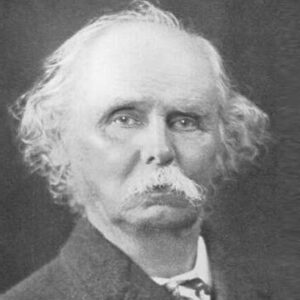Alfred Marshall was an English economist who is thought to be one of the best ever. He wrote the very well-known book “Principles of Economics,” which for many years was the most widely used economics textbook in England. Even though he wrote about many different types of economics, his main focus was on small-scale economics. He was the one who stressed the idea of price elasticity of demand, which is a very important idea in the study of how people buy and sell goods. Marshall was one of the most important economists in the early 20th century. It is amazing that many of the ideas in the Marshallian framework are still used today, even though economics has come a long way in the past century. Marshall was interested in math even when he was a young boy, and that interest grew as he got older. He was a brilliant mathematician in college, but after a mental breakdown, he became more interested in philosophy and ethics. He first got interested in economics because he thought it could help improve material conditions. He spent his whole life working to make economics a scientific field. At the same time, he wanted anyone to be able to learn about economics, so he wrote books in a way that was easy for anyone to understand.
Early years and childhood
He was born in Cambridge, England, on July 26, 1842. His father, William Marshall, worked at the Bank of England, and his mother, Rebecca Oliver, was a teacher. His family was in the middle class, and he had a good life as a child. His father had a lot of rules.
He went to Merchant Taylors’ School and then to St. John’s College, Cambridge, which was against what his father wanted. His father had given Alfred a classics scholarship and wanted him to go to Oxford.
He did well in school and was very interested in math and science. But he had a mental breakdown while he was in college and changed his major to philosophy.
His interest in metaphysics led him to study ethics, which made him want to study economics. He became interested in economics because he thought it was important for the working class to get better. The way he felt about right and wrong guided his work in economics.
Alfred Marshall’s Career
In 1868, he was given a position as a lecturer in the moral sciences at Cambridge’s St. John’s College. A few years later, in 1875, he went to the United States to study trade protection. When he got back to Cambridge, he worked to make the political economy a serious subject.
His hard work paid off, and in 1885, he was hired as a professor of political economy at Cambridge. In the years that followed, he became one of the most well-known economists in the country. In 1908, he left Cambridge.
During his time at Cambridge, he worked with other great thinkers like Henry Sidgwick, Benjamin Jowett, John Neville Keynes, and John Maynard Keynes to start what is now called the “Cambridge School.”
He began writing “Principles of Economics” in 1881 and worked on it for the next ten years. The book finally came out in 1890, and it became the standard textbook for economics students for many years.
The book “Principles of Economics” made him known as a very smart economist. It came out in eight editions and changed the way that students in English-speaking countries learned about economics. Marshall came up with many of the ideas in the book on his own.
Marshall wrote a lot of books, such as “The Economics of Industry” in 1879, “Elements of Economics of Industry” in 1892, “Industry and Trade” in 1919, and “Money, Credit, and Commerce” in 1929. (1923).
He also taught and wrote, and in 1890 he started the British Economics Association, which became the Royal Economics Society after 1902. He had a lot of power over how the government handled prices, gold and silver, money, and trade with other countries.
During his long and successful career, he was a well-known economist who had a big impact on how most people think about money. People think of him as one of the people who started the school of neoclassical economics.
He is known for making the demand-supply graph and making it more common to use diagrams to teach economics. He was also a key part of the “marginalist revolution.”
Works of note
He is best known for writing “Principles of Economics,” which became the most important book for economics students for many years. He was the first person to make the standard graph of supply and demand and to come up with a number of new economic ideas. This book made him one of the most important economists of his time.
Personal History and Legacies
He started dating Mary Paley, who had been one of his students and one of the first women to go to school at Cambridge. In 1877, he married her. Some of his books were written with the help of his wife.
In his later years, he started to have health problems, but he worked hard at his job until the end. He died on July 13, 1924, when he was 81 years old.
The Marshall Society and the Marshall Library of Economics are named after him.
Estimated Net worth
Unknown.


